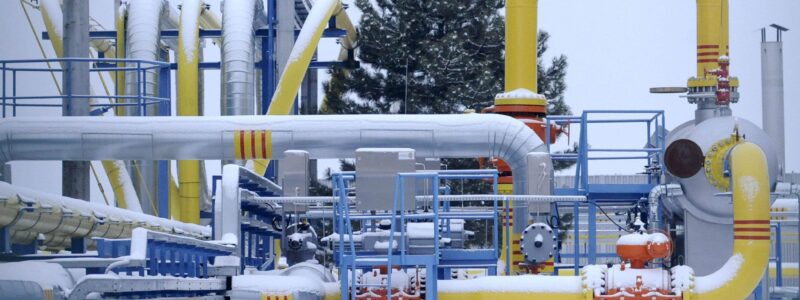
Slovakia will hold a series of talks starting next week to secure gas supplies from Russia after its current transit contract, which involves Ukraine, expires at the end of this year, Reuters reported on Friday, citing government officials.
“In the coming days, in particular during the Christmas holidays, you can witness extremely intense negotiations at different levels and in different countries, which will begin next week,” Slovak Prime Minister Robert Fico said at a press conference.
Denisa Sakova, Deputy Prime Minister and Minister of Economy of Slovakia, said that the talks would involve the European Commission, Ukraine and EU member states.
Fico said that he sought to ensure the continuation of supplies from the east to avoid additional fees for gas transit from other directions. “We see no reason to pay more for gas than necessary for geopolitical reasons… I believe that even if there is a short-term interruption of supplies from the east, we have enough reserves to find a common solution for several EU countries, and we will keep gas transit through Slovakia, as well as gas transit through Ukraine,” he said.
Reuters notes that Slovak officials have been looking for alternative gas transit schemes through Ukraine that would not require a direct agreement between Ukraine and Russia, but have not reached any agreement.
Slovakia reportedly has a long-term contract with Russia’s Gazprom and would like to keep importing Russian gas through Ukraine, but it will end at the end of 2024, as Ukraine does not plan to extend the transit contract with Gazprom.
Earlier, Hungarian Foreign Minister Péter Szijjártó said that Hungary and Bulgaria had found a legal and financial solution acceptable to the parties to continue the transit of Russian gas through their countries in the face of US sanctions against Gazprombank.
Hungary receives Russian gas through the Turkish Stream pipeline from Russia to Turkey and then transits through Bulgaria to Hungary. Hungary has received the bulk of its gas consumption through this route – this year, more than 7 billion cubic meters.
At the same time, Bloomberg, citing the Bulgarian Ministry of Energy, reports that “only a ‘solution’ to the problem was discussed, which would include Hungary and allow Bulgaria to continue receiving transit fees after the arrival of Russian gas.” Bulgaria has previously warned that it may stop transiting Russian gas to Central Europe if Gazprom does not find a payment solution, the agency reminds.